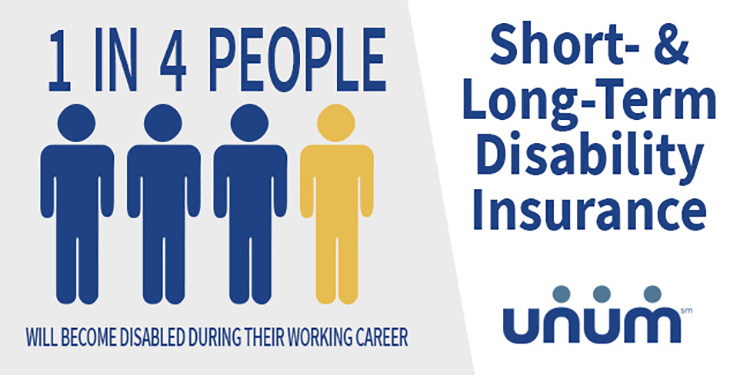
Most of us like to believe that we won’t ever suffer an accident. The chance of missing a month or even months of work due to injury seems remote, especially if you’re young and healthy. However, according to the Social Security Administration, one in four 20-year-olds will experience a disability for 90 days or more before they reach retirement age (67). If you were in an accident or diagnosed with an illness tomorrow, how far could you go without a paycheck? Vanderbilt covers eligible staff at a no-cost base coverage to a certain dollar amount and also offers buy-up coverage.
Short-Term Disability (STD)
Short-term disability insurance provides income replacement if you are unable to work for an extended period due to an approved medical condition. Once you have fulfilled the applicable waiting period, short-term disability insurance provides income protection up to 66 and two-thirds percent of your annual base benefits pay (up to $5,000 per week maximum). Short-term disability benefits may continue for up to 24 weeks.
Short-term disability provides base coverage, paid for by Vanderbilt with no cost to you, and buy-up coverage, which is paid for by you. The base portion pays 66 and two-thirds percent of your weekly wages on the first $24,000 of annual base salary with only a two-week waiting period (14 calendar days). The buy-up coverage pays 66 and two-thirds percent of your total weekly wages up to a $5,000 weekly maximum. Costs for the buy-up benefit depend on your annual salary. You may opt out of the buy-up coverage at any time, but if you wish to re-enroll in the buy-up coverage at another time, you will be subject to medical review and you could be denied.
Long-Term Disability (LTDI)
Long-term disability insurance pays 60 percent of your annual base salary, up to a maximum monthly benefit of $33,000, for those who become disabled and are unable to work for six months or longer. The LTDI insurance benefit also includes a 10 percent monthly contribution to your retirement account if you are a participant in the Vanderbilt University Retirement Plan.
What is provided:
Long-term disability insurance provides two standard payment benefits. Those benefits include:
- an income payment of a percentage of covered monthly earnings exclusive of overtime pay, bonuses and other types of extra compensation; and
- a contribution of 10 percent of retirement-eligible salary to your Vanderbilt University Retirement Plan account(s).
When Benefits Begin:
Benefits begin on the first day following six consecutive months of total disability as defined by the plan and determined by Unum. LTDI payments continue for as long as the disability lasts or up to age 65, whichever occurs first. If disability occurs after age 60, the maximum period of LTDI payments is based upon the following schedule:
| Age When Disabled | Benefits Payable |
| Prior to age 60 | To age 65, but not less than 5 years |
| Age 60–64 | 5 years |
| Age 65–69 | To age 70, but not less than 1 year |
| Age 70 and over | 1 year |
For more information, contact Human Resources at 615-343-4788 or human.resources@vanderbilt.edu.